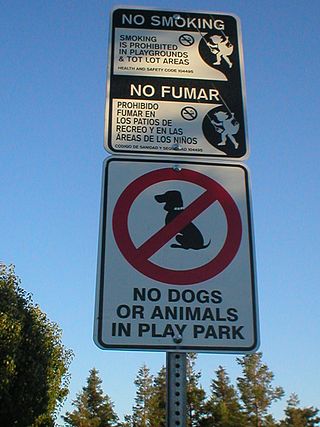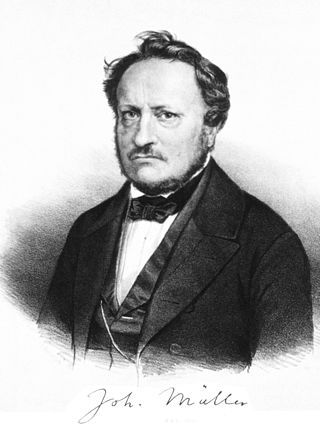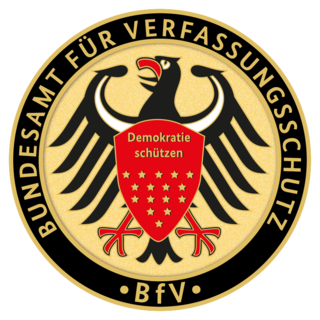
A city is a human settlement of a notable size. It can be defined as a permanent and densely settled place with administratively defined boundaries whose members work primarily on non-agricultural tasks. Cities generally have extensive systems for housing, transportation, sanitation, utilities, land use, production of goods, and communication. Their density facilitates interaction between people, government organizations, and businesses, sometimes benefiting different parties in the process, such as improving the efficiency of goods and service distribution.

Critical psychology is a perspective on psychology that draws extensively on critical theory. Critical psychology challenges the assumptions, theories and methods of mainstream psychology and attempts to apply psychological understandings in different ways, often looking towards social change as a means of preventing and treating psychopathology.

Social control is a concept within the disciplines of the social sciences. Social control is described as a certain set of rules and standards in society that keep individuals bound to conventional standards as well as to the use of formalized mechanisms. The disciplinary model was the forerunner to the control model.

Surveillance is the monitoring of behavior, many activities, or information for the purpose of information gathering, influencing, managing or directing. This can include observation from a distance by means of electronic equipment, such as closed-circuit television (CCTV), or interception of electronically transmitted information like Internet traffic. It can also include simple technical methods, such as human intelligence gathering and postal interception.

Criminal justice is the delivery of justice to those who have been accused of committing crimes. The criminal justice system is a series of government agencies and institutions. Goals include the rehabilitation of offenders, preventing other crimes, and moral support for victims. The primary institutions of the criminal justice system are the police, prosecution and defense lawyers, the courts and the prisons system.

A public space is a place that is open and accessible to the general public. Roads, public squares, parks, and beaches are typically considered public space. To a limited extent, government buildings which are open to the public, such as public libraries, are public spaces, although they tend to have restricted areas and greater limits upon use. Although not considered public space, privately owned buildings or property visible from sidewalks and public thoroughfares may affect the public visual landscape, for example, by outdoor advertising. Recently, the concept of shared space has been advanced to enhance the experience of pedestrians in public space jointly used by automobiles and other vehicles.

Law enforcement in China consists of an extensive public security system and a variety of enforcement procedures used to maintain order in the country. Along with the courts and procuratorates, the country's judicial and public security agencies include the Ministry of Public Security (MPS) and the Ministry of State Security (MSS), with their descending hierarchy of departments, bureaus, subbureaus, and stations.

Johannes Peter Müller was a German physiologist, comparative anatomist, ichthyologist, and herpetologist, known not only for his discoveries but also for his ability to synthesize knowledge. The paramesonephric duct was named in his honor.

Sousveillance is the recording of an activity by a member of the public, rather than a person or organisation in authority, typically by way of small wearable or portable personal technologies. The term, coined by Steve Mann, stems from the contrasting French words sur, meaning "above", and sous, meaning "below", i.e. "surveillance" denotes the "eye-in-the-sky" watching from above, whereas "sousveillance" denotes bringing the means of observation down to human level, either physically or hierarchically.

Public Administration or Public Policy and Administration is the implementation of public policy, administration of government establishment, management of non-profit establishment, and also a subfield of political science taught in public policy schools that studies this implementation and prepares people, especially civil servants in administrative positions for working in the public sector, voluntary sector, some industries in the private sector dealing with government relations, regulatory affairs, legislative assistance, corporate social responsibility (CSR), environmental, social, governance (ESG), public procurement (PP), public-private partnerships (P3), and business-to-government marketing/sales (B2G) as well as those working at think tanks, non-profit organizations, consulting firms, trade associations, or in other positions that uses similar skills found in public administration.

Land use planning is the process of regulating the use of land by a central authority. Usually, this is done to promote more desirable social and environmental outcomes as well as a more efficient use of resources. More specifically, the goals of modern land use planning often include environmental conservation, restraint of urban sprawl, minimization of transport costs, prevention of land use conflicts, and a reduction in exposure to pollutants. In the pursuit of these goals, planners assume that regulating the use of land will change the patterns of human behavior, and that these changes are beneficial. The first assumption, that regulating land use changes the patterns of human behavior is widely accepted. However, the second assumption - that these changes are beneficial - is contested, and depends on the location and regulations being discussed.

The Federal Office for the Protection of the Constitution is Germany's federal domestic intelligence agency. Together with the Landesämter für Verfassungsschutz (LfV) at the state level, the federal agency is tasked with intelligence-gathering on efforts against the liberal democratic basic order, the existence and security of the federation or one of its states, and the peaceful coexistence of peoples; with counter-intelligence; and with protective security and counter-sabotage. The BfV reports to the Federal Ministry of the Interior and tasks and powers are regulated in the Bundesverfassungsschutzgesetz. The President is Thomas Haldenwang; he was appointed in 2018.
Crime prevention through environmental design (CPTED) is an agenda for manipulating the built environment to create safer neighborhoods.
In the United States, Red Squads were police intelligence units that specialized in infiltrating, conducting counter-measures and gathering intelligence on political and social groups during the 20th century. Dating as far back as the Haymarket Riot in 1886, Red Squads became common in larger cities such as Chicago, New York, and Los Angeles during the First Red Scare of the 1920s. They were set up as specialized units of city police departments, as a weapon against labor unions, communists, anarchists, and other dissidents.
Cameralism was a German science of public administration in the 18th and early 19th centuries that aimed at strong management of a centralized economy for the benefit mainly of the state. The discipline in its most narrow definition concerned the management of the state's finances. Throughout the 18th and the first half of the 19th century, cameralism was influential in Northern European states — for example, in Prussia and Sweden — and its academics and practitioners were pioneers in economic, environmental, and administrative knowledge and technology; for example, cameralist accounting, still used in public finance today.

The political philosophy of Immanuel Kant (1724–1804) favoured a classical republican approach. In Perpetual Peace: A Philosophical Sketch (1795), Kant listed several conditions that he thought necessary for ending wars and creating a lasting peace. They included a world of constitutional republics by establishment of political community. His classical republican theory was extended in Doctrine of Right (1797), the first part of Metaphysics of Morals. At the end of the 20th century Kant's political philosophy had been enjoying a remarkable renaissance in English-speaking countries with more major studies in a few years than had appeared in the preceding many decades.
Law enforcement in Niger is the responsibility of the Ministry of Defense though the National Gendarmerie and the Ministry of the Interior through the National Police and the National Guard, a paramilitary police force.

The Faculty of Law of the University in Belgrade, also known as the Belgrade Law School, is one of the first-tier educational institutions of the University of Belgrade, Serbia. The building is located in the heart of the old part of Belgrade, in the urban neighborhood of Palilula, contiguously to the city park Tašmajdan, on Bulevar kralja Aleksandra.

Criminology is the interdisciplinary study of crime and deviant behaviour. Criminology is a multidisciplinary field in both the behavioural and social sciences, which draws primarily upon the research of sociologists, political scientists, economists, legal sociologists, psychologists, philosophers, psychiatrists, social workers, biologists, social anthropologists, scholars of law and jurisprudence, as well as the processes that define administration of justice and the criminal justice system.
Security, Territory, Population is part of a lecture series given by French philosopher Michel Foucault at the Collège de France between 1977 and 1978 and published posthumously based on audio recordings. In it, Foucault examines the notion of biopolitics as a new technology of power over populations that is distinct from punitive disciplinary systems, by tracing the history of governmentality, from the first centuries of the Christian era to the emergence of the modern nation state. These lectures illustrate a radical turning point in Foucault's work in which a shift to the problematic nature of the government of the self and others occurred.